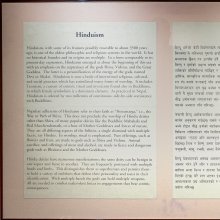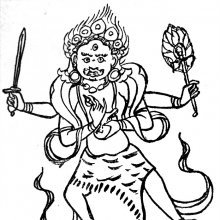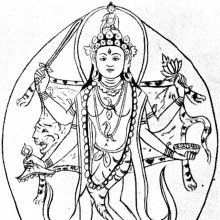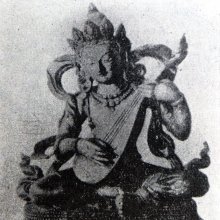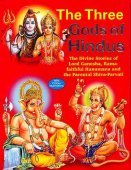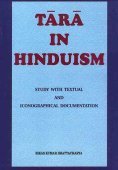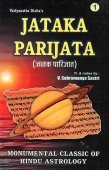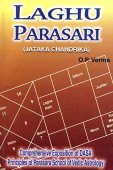Hindu, Hindū, Himdu: 8 definitions
Introduction:
Hindu means something in Hinduism, Sanskrit, Marathi. If you want to know the exact meaning, history, etymology or English translation of this term then check out the descriptions on this page. Add your comment or reference to a book if you want to contribute to this summary article.
Images (photo gallery)
(+137 more images available)
Languages of India and abroad
Marathi-English dictionary
Source: DDSA: The Molesworth Marathi and English Dictionaryhindū (हिंदू).—m ( P Black. Applied by thePersians to the Ethiopians, black Arabians, Indians &c.) A Hindu.
Source: DDSA: The Aryabhusan school dictionary, Marathi-Englishhindū (हिंदू).—m A Hindu.
Marathi is an Indo-European language having over 70 million native speakers people in (predominantly) Maharashtra India. Marathi, like many other Indo-Aryan languages, evolved from early forms of Prakrit, which itself is a subset of Sanskrit, one of the most ancient languages of the world.
Sanskrit dictionary
Source: DDSA: The practical Sanskrit-English dictionaryHindu (हिन्दु).—also हिन्दू (hindū). Name of the people of Hindusthan or Bhāratavarṣa. The name appears to have been derived from Sindhu, the name of the celebrated river where the Vedic Āryans recited their Vedic mantras. In the Avesta स् (s) is pronounced as ह् (h); so सप्तसिन्धु (saptasindhu) was pronounced by the Persians as हप्तहिन्दु (haptahindu). The Bhaviṣya-Purāṇa speaks of हप्तहिन्दु (haptahindu). Here are a few references in a few Kośas and the Purāṇas :(1) The Kālikā-Purāṇa says, "कलिना बलिना नूनमधर्माकलिते कलौ । यवनैर्घोरमाक्रान्ता हिन्दवो विन्ध्यमाविशन् (kalinā balinā nūnamadharmākalite kalau | yavanairghoramākrāntā hindavo vindhyamāviśan) ||" (2) The Merutantra of the 8th century A. D.-"हिन्दुधर्मप्रलोप्तारो जायन्ते चक्रवर्तिनः । हीनं च दूषयत्येष हिन्दूरित्युच्यते प्रिये (hindudharmapraloptāro jāyante cakravartinaḥ | hīnaṃ ca dūṣayatyeṣa hindūrityucyate priye) ||" (3) The Rāmakośa--"हिन्दुर्दुष्टो ना भवति नानार्यो न विदूषकः । सद्धर्मपालको विद्वान् श्रौतधर्मपरायणः (hindurduṣṭo nā bhavati nānāryo na vidūṣakaḥ | saddharmapālako vidvān śrautadharmaparāyaṇaḥ) ||" (4) The Hemantakavikośa-"हिन्दुर्हि नारायणादिदेवताभक्तः (hindurhi nārāyaṇādidevatābhaktaḥ)" (5) The Adbhutarūpakośa-"हिन्दुर्हिन्दूश्च पुंसि द्वौ दुष्टानां च विघर्षणे (hindurhindūśca puṃsi dvau duṣṭānāṃ ca vigharṣaṇe) |"
Derivable forms: hinduḥ (हिन्दुः).
Source: Cologne Digital Sanskrit Dictionaries: Shabda-Sagara Sanskrit-English DictionaryHindu (हिन्दु).—m.
(-nduḥ) A particular caste, the Hindus. Prof. Taranath thus defines this word in his Vachaspatya:—hīnaṃ dūṣayati-duṣa + ḍu pṛṣo0 .
Source: Cologne Digital Sanskrit Dictionaries: Cappeller Sanskrit-English DictionaryHindu (हिन्दु).—[masculine] a Hindu; sthāna [neuter] Hindustan.
Source: Cologne Digital Sanskrit Dictionaries: Monier-Williams Sanskrit-English DictionaryHindu (हिन्दु):—m. ([from] the Persian هندو) a Hindu (more properly Hindū).
[Sanskrit to German]
Sanskrit, also spelled संस्कृतम् (saṃskṛtam), is an ancient language of India commonly seen as the grandmother of the Indo-European language family (even English!). Closely allied with Prakrit and Pali, Sanskrit is more exhaustive in both grammar and terms and has the most extensive collection of literature in the world, greatly surpassing its sister-languages Greek and Latin.
Kannada-English dictionary
Source: Alar: Kannada-English corpusHiṃḍu (ಹಿಂಡು):—
1) [verb] to press (a fruit) hard from two oposite sides as to take the juice out; to sqeeze.
2) [verb] to twist (as a soaked cloth) to take water out.
3) [verb] to pour (a liquid) into.
4) [verb] (fig.) to make weak or weaker; to weaken.
5) [verb] to draw the milk from the udder of a cow etc.
6) [verb] (a cow, etc.) to give milk; to milk.
7) [verb] to press (a part of the body) to cause pain.
8) [verb] to annoy; to harm; to mollest.
9) [verb] to suck up; to absorb.
10) [verb] to wipe out; to eradicate; to destroy.
--- OR ---
Hiṃḍu (ಹಿಂಡು):—
1) [noun] a group of persons animals or things; a multitude; a gathering; a herd.
2) [noun] cooked, solid food formed into spherical shape, which can be held in one’s palm, for offering or offered to a god or manes.
--- OR ---
Hiṃdu (ಹಿಂದು):—
1) [noun] the rear or hinder part of anything; back.
2) [noun] a going back, as from facing danger, taking up an arduous, responsible job, etc.
--- OR ---
Hiṃdu (ಹಿಂದು):—
1) [noun] = ಹಿಂದೂಧರ್ಮ [himdudharma].
2) [noun] a native or inhabitant of India or the India.
3) [noun] a follower of Hinduism.
--- OR ---
Hiṃdū (ಹಿಂದೂ):—[noun] = ಹಿಂದು [himdu]2.
Kannada is a Dravidian language (as opposed to the Indo-European language family) mainly spoken in the southwestern region of India.
See also (Relevant definitions)
Starts with (+32): Himdua, Himdudesha, Himdudi, Himdudu, Himdugade, Himdugalaka, Himdugale, Himdugamkana, Himdugattale, Himdugattige, Himdugattu, Himdugol, Himdugudu, Himduguta, Himduholahu, Himdukaupa, Himdule, Himduli, Himdulike, Himdulisu.
Ends with: Bhindu, Hulihimdu, Ihindu, Jivahimdu, Kivihimdu, Lushindu, Mchindu, Meytintu, Oddehimdu, Vibhindu, Vidhīndu.
Full-text (+3183): Hindudharma, Upavita, Phalguna, Mimamsa, Brahma, Vishnu, Bhikshu, Upanishad, Pancamahayajna, Tulasi, Himdu, Carata, Agrahayana, Savarna, Shadja, Hindusthana, Araraka, Dharmashastra, Savarn, Shraddha.
Relevant text
Search found 278 books and stories containing Hindu, Hindū, Himdu, Hiṃḍu, Hiṇḍu, Hiṃdu, Hiṃdū; (plurals include: Hindus, Hindūs, Himdus, Hiṃḍus, Hiṇḍus, Hiṃdus, Hiṃdūs). You can also click to the full overview containing English textual excerpts. Below are direct links for the most relevant articles:
Prasthanatrayi Swaminarayan Bhashyam (Study) (by Sadhu Gyanananddas)
4.1. Life and Work of Bhagavān Svāminārāyaṇa < [Chapter 1 - Introduction]
5.5.1. The Uniqueness of the Manifestation < [Chapter 3 - Analysis on the Basis of Metaphysics]
3. The Ultimate Goal < [Chapter 5 - Analysis on the basis of Soteriology]
Jinnah’s Opposition To Gandhi in The Quit India Movement < [July – September 1991]
Gandhiji and Hindu - Muslim Unity < [October – December, 2000]
Hindu Writers Of Urdu Literature < [March-April, 1930]
Complete works of Swami Abhedananda (by Swami Prajnanananda)
Discourse 3 - Why a Hindu accepts Christ and Rejects Churchianity < [Volume 2]
Chapter 5 - Education in India < [Discourse 1 - India and Her People]
Chapter 6 - The Influence of India on Western-Civilization < [Discourse 1 - India and Her People]
A History of Indian Philosophy Volume 1 (by Surendranath Dasgupta)
Part 2 - The place of the Vedas in the Hindu mind < [Chapter II - The Vedas, Brāhmaṇas And Their Philosophy]
Part 14 - The Tanmātras and the Paramāṇus < [Chapter VII - The Kapila and the Pātañjala Sāṃkhya (yoga)]
Part 5 - The Upaniṣads and their interpretations < [Chapter III - The Earlier Upaniṣads (700 B.c.— 600 B.c.)]
The Indian Buddhist Iconography (by Benoytosh Bhattachacharyya)
Figure 135-136 - Emanations of Akṣobhya: Mahācīna Tārā (Ugratārā)
Figure 240 - Ten principal Hindu deities: Maheśvara
The Vishnu Purana (by Horace Hayman Wilson)
Related products
(+27 more products available)
